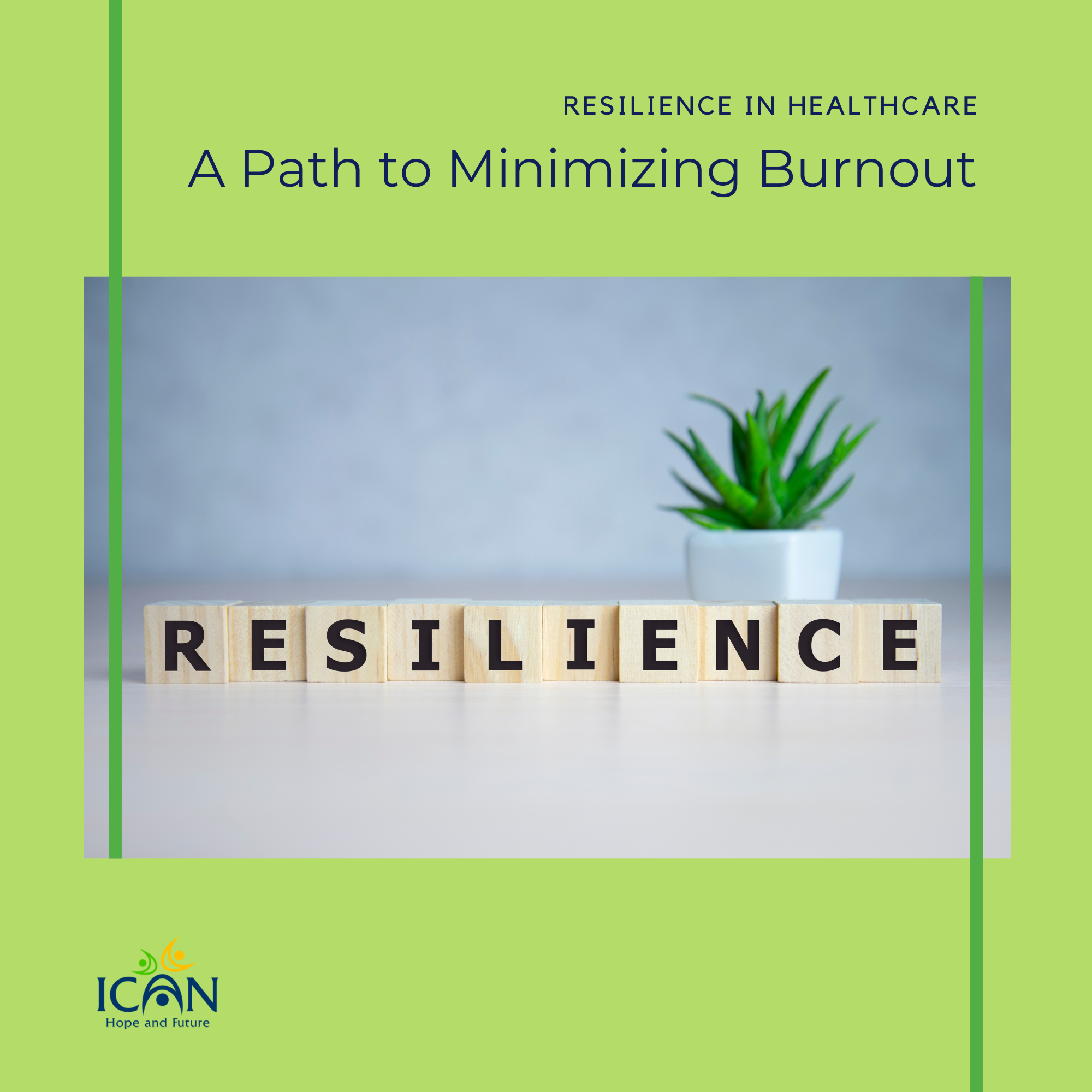
It Starts With You: Building Resiliency In Kids
We all want to raise resilient kids—whether we're therapists, parents, or both. But resilience isn’t something children just learn from us… it’s something they see in us.
When we pause instead of react, name our own feelings, and repair after tough moments, we’re not just managing our emotions—we’re modeling emotional strength. And kids pick up on that more than anything we say.
Want to help your child or client regulate, communicate, and cope with life’s ups and downs?
Start by asking: How do I handle mine?
Because the most powerful lessons in resilience start with how we show up.

From Isolated to Inspired: How Connection Transforms the Pediatric Provider Experience
Burnout doesn’t always start with exhaustion—it often begins with isolation. At ICAN, we believe no clinician should have to do this work alone. In our latest blog post, we explore the silent toll of professional loneliness and how a truly collaborative culture can change everything.
If you’ve been feeling disconnected in your role, this one’s for you. 💬👇

Trust, Teamwork, and Empathy (Part 2): Improving Pediatric Therapy Team Dynamics
Strong teams don’t just happen-they’re built on trust, understanding, and genuine empathy. In the high-stakes world of pediatric therapy, Brené Brown’s four pillars of empathy can help team members connect, communicate, and collaborate more effectively. This post explores how embracing perspective-taking, nonjudgment, emotional awareness, and mindfulness can improve relationships among colleagues, reduce conflict, and create a supportive workplace where everyone feels valued and empowered.

Trust, Teamwork, and Empathy (Part 1): Compassion Fatigue
While empathy is essential for building trust and collaboration in pediatric therapy teams, it also comes with a hidden cost: compassion fatigue. This emotional exhaustion can quietly creep in when staff members are consistently exposed to the challenges and traumas faced by the children and families they serve. Recognizing the signs of compassion fatigue and supporting one another through open communication, peer support, and mindful self-care is crucial. By addressing compassion fatigue head-on, teams can maintain their well-being, preserve strong interpersonal relationships, and continue providing the highest quality care to those who need it most.

Leveling the Playing Field: The Power of Adaptive Sports
For years, conversations around disabilities have focused on raising awareness-but now, we’re moving toward something even more powerful: acceptance and true inclusion. Nowhere is this shift more inspiring than in the world of sports. When people with neurodivergence and different disabilities are welcomed onto the field, the benefits ripple far beyond the scoreboard. Inclusive sports programs foster confidence, friendship, and a sense of belonging, reminding us that everyone deserves the chance to play, grow, and celebrate their unique strengths-together.

Understanding the New CDC Autism Prevalence Estimates: A Parent-Friendly, Neurodiversity-Affirming Guide
The CDC’s latest numbers show that 1 in 31 children in the U.S. are now identified as autistic—a noticeable increase from previous years. But what’s behind this rise? In this parent-friendly, neurodiversity-affirming post, we explore how changes in diagnostic criteria, growing awareness, and a better understanding of autism as a spectrum have led to more children being recognized and supported. Discover why these numbers are a sign of progress, and how embracing neurodiversity can help every child thrive.



Resiliency in Healthcare: A Path to Minimizing Burnout
As healthcare professionals working with neurodivergent youth, we face unique challenges that can lead to burnout if not managed effectively. Building resilience is key to thriving in these roles. By focusing on strategies like mindfulness, self-care, and fostering a growth mindset, we can enhance our ability to handle stress and maintain our well-being. Additionally, utilizing tools like the Circles of Control can help us channel our energy more effectively, reducing stress related to uncontrollable factors. By prioritizing resilience, we not only benefit ourselves but also improve the quality of care we provide to our clients. Dive into this blog post to explore these strategies and more, including recommended books to deepen your understanding of personal growth and resilience.
